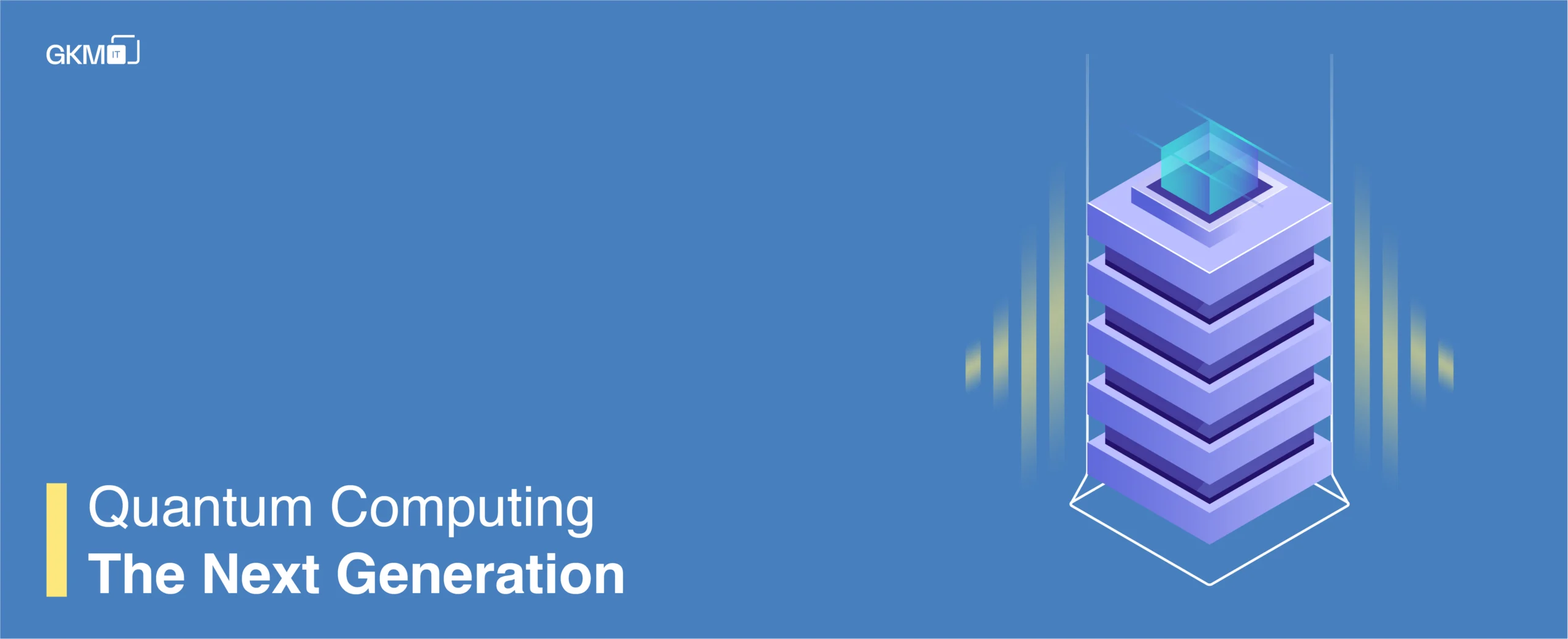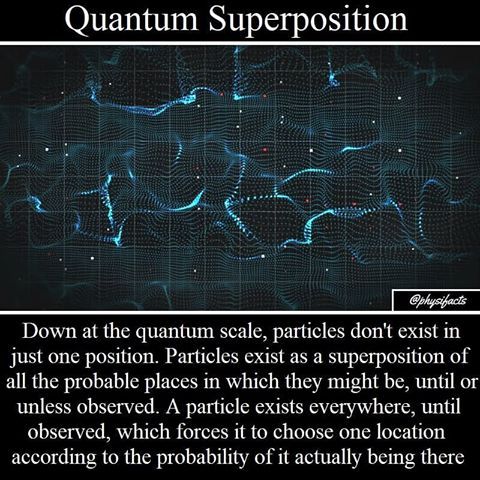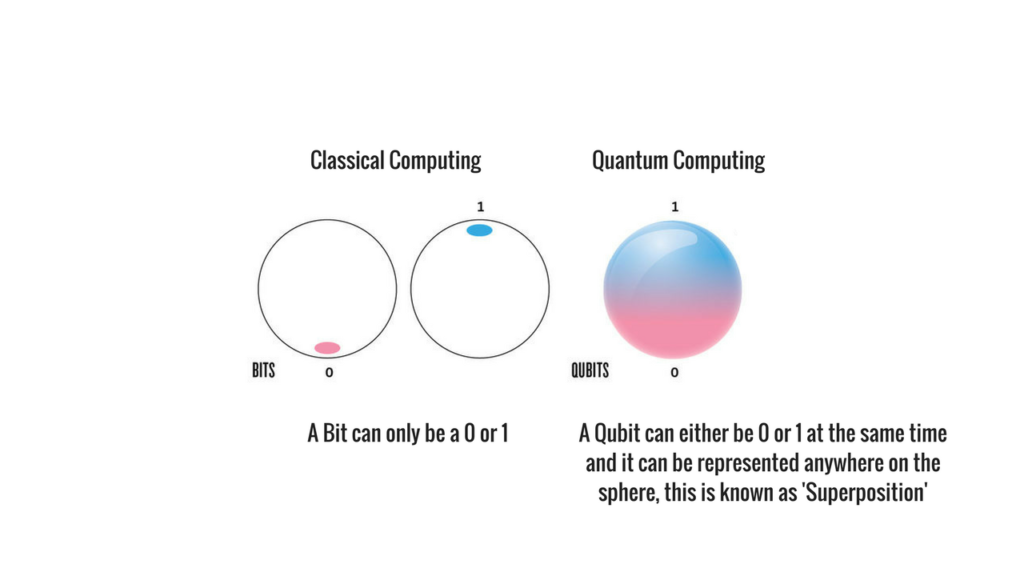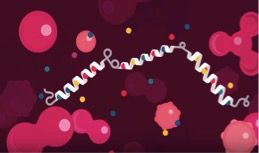
Quantum Computing – The Next Gen
Evolution of Technology Over the Past Two Decades
Over the past two decades, there has been a tremendous rise in the evolution of technology, thereby growing businesses to greater levels. Technology has done great wonders, from banking to finance to e-commerce and entertainment.
One out of a thousand advancements is the advancement in bit computing, called Quantum Computing. The computing power of any computer majorly depends on its processor, that is, the number of integrated circuits. However, basic computing depends only on 2 bits, either a 0 or a 1. No matter how many chips or precisely, how many transistors we integrate, this processor can have only one state out of the two (0 or 1) at a time. Another aspect of classical computing is that the memory is made of bits, and one bit can hold only one value out of 0 and 1. This reduces the overall capacity of the system to hold larger data, such as in trillions. A quantum computer, however, can take both bits – 0 and 1 simultaneously and hence, gives an edge over classical computers! The question is, HOW???

IBM’s Quantum Computer – outranked all other quantum computers by attaining 56-Qubit quantum supremacy which simulated with only4.5 terabytes of memory.
IBM’s Quantum Computer outranked all other quantum computers by attaining 56-Qubit quantum supremacy, which was simulated with only 4.5 terabytes of memory.
Quantum computers use quantum bits, popularly known as Qubits. These qubits may consist of both 0 and 1. Now, when we say it consists of both 0 and 1, we mean that there is a state such that it possesses the characteristics of both state 0 and state 1. This has been achieved by the concepts of SUPERPOSITION and ENTANGLEMENT.
The superposition principle states that at a time, the qubit can exist in one or more of the possible states, the possible states being 2^n, where n is the number of qubits. For instance, if there is a 2-qubit quantum computer, the possible states in which it can exist would be 2^2 = 4 [00, 01, 10, 11], simultaneously in 0 and 1!
Entanglement proposes the concept of correlation of qubits. Imagine 2 qubits, each in the state |0> + |1> (a superposition of 0 and 1). We can entangle the 2 qubits such that the measurement of one qubit is always correlated to the measurement of the other qubit.

Difference Between a Bit and a Qubit
Let us try to understand the difference between a bit and a qubit in an easier way. Consider a sphere. A bit can be either in state 0 or 1. This means it can be on either of the two poles of the sphere.

However, a qubit can be in either of the two states or even in a superposition of both states. So it can lie anywhere on the sphere. Hence qubits can make the most out of the same space that a bit can make in a classical computer. A qubit can store 2^n states in just n bits, while a classical computer would only be able to store n states in n bits. This is why storage of large information is possible in a quantum computer. So where do you think these large calculations come from?
Applications of Quantum Computers
There are several fields where quantum theory excels over classical theory. Some of the most critical ones are:
1. Biomedical Simulations
Quantum simulation of molecules such as proteins and other atoms and ions can lead to the development of better medicines and treatments for chronic illnesses.

2. Machine Learning and Big Data
Artificial Intelligence requires large datasets to be able to extract information. We already have a huge amount of data today (around 7-8 Zettabytes already existed until 2015!). This data can be well analyzed by a quantum computer, rather than using the distributed computing concept.
3. Optimization
Let us say a salesman needs to travel to multiple cities to sell his products. He wants to find an optimal route to cover all cities in minimal time. With a few cities, it can be solved on a classical computer. However, with just 300 cities to cover, he would have more routes than the total atoms present in the Universe! Classical computers cannot handle such a large number. Hence, quantum computing proves far more efficient as a solution for optimization.
The Role of Quantum Computing in Cloud Computing Services
Quantum computing is expected to revolutionize Cloud Computing Services by enabling faster data processing, enhanced security through quantum cryptography, and real-time optimization of cloud-based applications. The ability of quantum computers to perform complex calculations at an unprecedented speed will drive efficiency in cloud-based machine learning, AI models, and large-scale data analytics.
Challenges in Quantum Computing
300 perfectly entangled qubits in superposition could map all the information in the universe starting from the Big Bang! Then what are we waiting for???
With every revolutionizing technology, comes heating challenges.
When we talk about the superposition of qubits, this superposition stays within the system until we disturb the system to measure the state. These superpositions cannot stay for long and hence, by the time we are ready to do the calculations based on these superpositions, other factors such as heat, pressure, temperature, magnetic interference, etc. destroy the superposition, bringing its operation to the same level as classical computing. This is called decoherence.
Decoherence is the biggest challenge that the quantum world is dealing with. We need to preserve the results until we can record them. This challenge is being looked upon by various error correction theories.
Conclusion
Talking at such length about quantum computing might make you think this would replace classical computers shortly. But this is not the case.
Classical computers can never be replaced completely by quantum computers. Quantum computers have been designed to solve problems that classical computers cannot. But several factors give an edge to classical computers over quantum computers:
- The cost of designing quantum computers is very high.
- They require very intricate designing, which can only be done by people having extreme knowledge of the technology and subject.
- The end users are more familiar with classical computers.
- Quantum systems are very limited in number.
Classical computers are never going out of fashion. But quantum computers still have a long way to go!